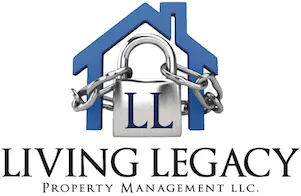(410) 376-5441
info@livinglegacymanagement.com


Blog
Blog

Everything You Need to Know About Baltimore City’s Rental Property Registration & Licensing Requirement
Everything You Need to Know About Baltimore City’s Rental Property Registration & Licensing Requirement

What the Law Covers: Scope & History
Until recently, only multi-unit dwellings in Baltimore required licensing. But under Council Bill 18‑0185, effective August 1, 2018, all residential rental units in Baltimore City—including one- and two-family houses—must register, inspect, and license by January 1, 2019. dhcd.baltimorecity.gov
Maryland People's Law LibraryImportantly, registration applies even if the property is vacant, unoccupied, not generating income, or simply non-owner-occupied. dhcd.baltimorecity.gov
The applicable law is found in the Baltimore City Code, Article 13, Subtitle 4 (Registration) and Subtitle 5 (Licensing). Maryland People's Law Library
Why this change matters:
Leveling the playing field—one- and two-family dwellings are now regulated like bigger rental buildings.
Ensuring safety and habitability across all rental housing, regardless of size.
Providing clearer enforcement tools for the City in cases of unsafe or unlicensed rentals.
Registration Requirements: Step-by-Step
To comply with the registration requirement, you must complete the following for every non-owner-occupied dwelling unit:
1. Register the property
Use the online portal (via the Baltimore City Department of Housing and Community Development (DHCD)). dhcd.baltimorecity.gov
Provide the owner’s current contact information and property specifics (address, number of units, occupancy status).
Pay the annual registration fee. (Fees vary; see the registration portal for specifics.) dhcd.baltimorecity.gov
Note: Registration must be renewed every year (January 1 – December 31). dhcd.baltimorecity.gov
2. Transfer or new acquisition
When you buy a property, you must register it within 10 days of transfer. dhcd.baltimorecity.gov
3. Continue to pay fees even if the property is vacant
Even if you’re not currently renting or the property is empty, registration is still required. dhcd.baltimorecity.gov +1
Inspection & Licensing: What You Must Do
Once registered, if you intend to rent the property, you must pursue licensing and inspection.
Licensing requirements
To obtain a rental license, you must:
Complete property registration (see previous section) with the current owner's contact info. dhcd.baltimorecity.gov
Submit a passing third-party inspection report by a State-licensed and City-registered home inspector—or submit a valid §8 inspection if applicable. dhcd.baltimorecity.gov
Multi-family dwellings need only a portion of units inspected per the City’s “MFD chart”. dhcd.baltimorecity.gov
Provide current lead certification for each unit (especially for buildings constructed before 1978). Ben Frederick Realty
Pay all registration and licensing fees owed.
Have no open code violations on the property. If there are violations, those must be abated before license issuance. Maryland People's Law Library
Timeline and Validity
Initial licenses are typically two years, after which renewals may be for one to three years, depending on the property’s compliance history. dhcd.baltimorecity.gov
Inspection reports must be relatively recent (for new registrations: inspection report within 30 days for 1-2 family dwellings; 90 days for multi-family dwellings). dhcd.baltimorecity.gov
What the inspector will look for
Inspectors assess for basic life-safety, health, and habitability items, including:
Electrical system hazards
Plumbing and functioning utilities
Working smoke and carbon monoxide detectors
Sanitary interior and exterior conditions
Proper lead paint certification (for older buildings) dhcd.baltimorecity.gov
Why This Matters: Risks & Penalties for Non-Compliance
Risks for landlords
Without a current license, a landlord may not legally collect rent from tenants. Maryland People's Law Library
Non-compliance may lead to civil citations, misdemeanor charges, and fines up to $1,000 per offense. Maryland People's Law Library
Properties with open code violations risk license denial or suspension.
Risks for tenants
Renting an unlicensed property may impair your legal protections (eviction cases, habitability claims).
You have a right to verify a landlord’s license status via City records. dhcd.baltimorecity.gov
Financial & reputational consequences
Unlicensed properties can impact resale or refinancing due to unresolved housing code issues.
A property flagged for registration or licensing violations can reduce investor confidence and tenant demand.
Key Tips for Landlords: Best Practices & Pitfalls to Avoid
Best practices
Register early: Don’t wait until a tenant moves in—complete registration as soon as you acquire the property.
Schedule inspections proactively: Book a State-licensed inspector and correct any issues before submission.
Keep documentation: Retain inspection reports, lead certificates, code violation clearances—store them for at least several years.
Monitor renewal dates: Even if you’ve previously obtained a license, renewal may require a fresh inspection depending on your compliance history.
Use the official portal: Use the DHCD online portal for registration and renewal to avoid errors and delays.
Check your managing agent status: If you use a property manager, make sure their contact and license details are up-to-date in the City’s system.
Common pitfalls to avoid
Waiting until a tenant signs a lease to register and inspect the property.
Using an inspector not registered with Baltimore City, the report may be rejected.
Failing to pay registration or licensing fees on time leads to late penalties or an invalid license.
Overlooking multi-family inspection partial-unit rules (the “MFD chart”).
Ignoring lead-paint certification rules for older buildings—this can delay licensing.
"FAQs" Common Questions from Landlords & Tenants
Q: Is owner-occupied property exempt from registration/licensing?
A: Yes—owner-occupied 1- and 2-family homes where the owner resides in the property are generally exempt from the rental license requirement. Maryland People's Law Library
Q: Can I still rent if my license has expired?
A: No. Without a current rental license, you may not legally collect rent, and you risk enforcement actions. Maryland People's Law Library
Q: If I already have a property registered, do I still need to inspect it each year?
A: Not necessarily every year—initial license requires inspection, renewal inspections vary (1-3 years) depending on compliance history. dhcd.baltimorecity.gov
Q: What if my building was built before 1978—what about lead paint?
A: If so, you must submit lead certification for each unit (XRF testing or certified lead-free certificate) per the above requirements. Ben Frederick Realty
Q: How do I check if a property has a valid license or registration?
A: Use the public verification tool on the DHCD website to search by address, block/lot, or zip. dhcd.baltimorecity.gov
Conclusion: Staying Ahead & Protecting Your Investment
Navigating Baltimore City’s rental registration, inspection, and licensing regime isn’t merely a bureaucratic step—it’s an essential component of owning and operating rental housing legally and responsibly. By staying proactive, organized, and compliant, you protect your rental income, avoid costly enforcement, and build trust with tenants.
If you’re a landlord in Baltimore, treat registration and licensing as non-negotiable tasks, integrated into your regular property management workflow. Missed deadlines or undocumented inspections can ripple into lost income, legal liability, or even curtail your ability to enforce leases.
Take action now: Verify your property’s registration, schedule the appropriate inspection, submit all required documents, pay fees, and secure your rental license. It’s the best path forward for smooth, lawful operations—and peace of mind.
Higher Returns For Homeowners
Living Legacy Property Management creates higher returns for owners of rental properties. How? We maintain the lowest vacancy levels, provide exceptional property upkeep and have an on-call service team

OCCUPANCY
We beat our competitors with a 95.8% occupancy rate.

VACANCY
Our vacancy sits low at only 4.2%.

LEASE RENEWAL
We've got an exceptional 74% lease renewal rate

RENT COLLECTION
Our rental collection rate is an impressive 99.34%.
AREAS
WE SERVICE
Anne Arundel
Baltimore City
Baltimore County
Harford
Howard
Montgomery
Prince George
Office Hours
Monday: 9am - 5pm
Tuesday: 9am - 5pm
Wednesday: 9am - 5pm
Thursday: 9am - 5pm
Friday: 9am - 5pm
Document & Check Drop Off: 24hrs

Copyright © 2023 Living Legacy Property Management, LLC All Rights Reserved.
Living Legacy is committed to ensuring that its website is accessible to people with disabilities. All the pages on our website will meet W3C WAI's Web Content Accessibility Guidelines 2.0, Level A conformance. Any issues should be reported to jamal.legacy@gmail.com. Website Accessibility Policy policy / Term of Conditions
